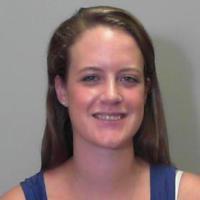



In early 2017, recognizing that medical students would benefit from a student-run research committee aimed at building a peer-based network of support, the School of Medicine (SOM) Student Senate developed a new Research Subcommittee. Spearheaded by Ari Morgenthau, M.D. ’17, who was a fourth-year medical student at the time, the Research Subcommittee was created to be a platform for peer support to help student researchers identify research topics, secure faculty mentorships, share their work and hone their presentation skills. Nearly a year later, the Research Subcommittee has flourished—expanding in scope to include the new Medical Student Research Seminar Series (MSRSS), a year-long series, held up to two times per month during the lunch hour.
Launched under the leadership of second-year medical students Erin Caraher, right, and Jayaji More, left, who were part of the inaugural Research Subcommittee—the seminar series is meant to complement the annual Medical Student Research Forum held each year in February, and is another chance for SOM students to practice giving a scientific presentation and share their work with peers. Five seminars were held in fall 2017, featuring collaborations with several student specialty interest groups, including groups in urology and ophthalmology.
“Our main goal as members of the Research Subcommittee is to make research a greater part of the New York Medical College (NYMC) student experience. To that end, we are working to both highlight ongoing student projects, particularly projects at NYMC and its affiliated institutions, as well as give junior medical students more opportunities to learn about how to get involved in research and identify mentors across a wide range of specialties,” Mr. More explained. “At each seminar, two senior medical students give 10-minute presentations about research they have been involved in since starting medical school, answer questions, and discuss the process of finding their mentors.”
According to Mary Petzke, Ph.D., director of medical student research and assistant professor of microbiology and immunology, the seminar series was an immediate success with 30 to 50 students attending each seminar, and the series receiving positive student feedback. “The success of the bimonthly seminar series has exceeded expectations and has become an integral component of the Research Area of Concentration,” Dr. Petzke said. In fact, “Students aiming to graduate with distinction in research are required to attend at least 50 percent of the seminars during their first or second year. It not only provides student researchers with a platform for disseminating their results and developing their science communication skills, but it encourages mentorship of junior students by senior students in terms of identifying research projects and faculty mentors.”
The Research Subcommittee’s next seminar, a neurosurgery-themed seminar, is scheduled for Wednesday, March 21, in Chouake Auditorium at noon. The remaining spring seminars are being finalized with radiation oncology and cardiology as tentative themes.